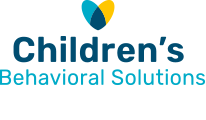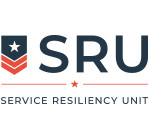The Acadia Healthcare Service Resiliency Unit (SRU) team provides a vital, free service to help military family members find effective care for mental health disorders and behavioral health concerns.
Who We Serve
The Service Resiliency Unit team helps the spouses, children, and other eligible dependents of personnel from the following branches:
- Army
- Navy
- Air Force
- Marine Corps
- Coast Guard
- Space Force
- Army National Guard
- Air National Guard
- Commissioned Corps of the Public Health Service
- Commissioned Corps of the National Oceanic and Atmospheric Association
When a member of a military family struggles with a mental health disorder or a behavioral health concern, the SRU team can provide the family with considerable information, guidance, and support.
Strategically located in communities throughout the United States, SRU liaisons are available 24/7 to help military family members understand their options and access the treatment services that will best address their specific needs.
How We Help
SRU liaisons work with families to determine the full scope of their needs, identify trusted treatment providers that offer the appropriate type and level of care, and guide them through the admissions process.
Our services include gathering necessary documentation, working directly with TRICARE and other insurance providers, coordinating with referring professionals and follow-on placement personnel, and ensuring that military family members have the answers they need every step of the way.
During and after a person’s time in treatment, their SRU liaison will monitor their progress and ensure that they are connected with the services and resources that will support them during the posttreatment phase of their journey to improved health.
Disorders Treated
The SRU team can identify age-appropriate treatment solutions for children, adolescents, and adults who are struggling with many types of mental health disorders and behavioral health concerns, including:
- Anxiety
- Depression
- Bipolar disorder
- Posttraumatic stress disorder (PTSD)
- Attention-deficit/hyperactivity disorder (ADHD)
- Oppositional defiant disorder (ODD)
- Substance use and addiction
- Dual diagnosis
- Deployment-related stress
- Family stress
- Moral injury
Multiple Levels of Care
Deciding which level or levels of care are most appropriate for a military family member is a vital step on the path to improved health.
Depending on factors such as the person’s age and developmental level, their treatment history, and the nature and severity of their symptoms, the SRU team may recommend facilities that provide:
- Inpatient treatment
- Residential care
- Partial hospitalization programs (PHPs)
- Intensive outpatient programs (IOPs)
- Therapeutic group homes
- Traditional outpatient services
Types of Therapy
The SRU team appreciates the importance of providing each child, adolescent, or adult with personalized care that addresses their specific needs. The facilities in our referral network offer an array of customized services, including:
- Acceptance and commitment therapy (ACT)
- Cognitive processing therapy (CPT)
- Dialectical behavior therapy (DBT)
- Eye movement desensitization and reprocessing (EMDR)
- Medical detoxification
- Medication management services
- Individual, group, and family therapies
- Experiential therapies
- Animal-assisted therapy
- Equine therapy
- Virtual reality therapy
- Mindfulness
- Yoga
- Educational programming
- 12-Step education and support
- SMART Recovery
Insurance Information
The SRU referral network includes treatment centers that accept commercial insurance, Medicare, and TRICARE. Our military liaisons will work with each family to find the provider that’s the best fit for them in all essential areas, including type and level of care, location, and financial circumstances.
To learn more about how the SRU team can help you or a member of your family, contact your area military liaison today.






